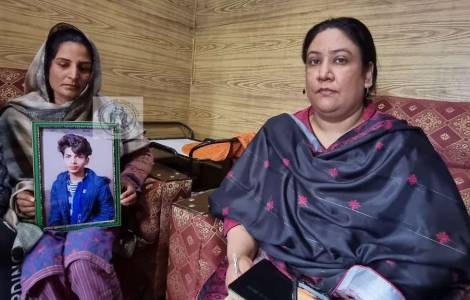
Lahore (Agenzia Fides) - Sunil Masih was a 14-year-old Christian boy who lived with his family in the Mandiala Warraich area, in the district of Gujranwala, a city in the Pakistani province of Punjab. Four men armed with guns killed him in cold blood on February 5. The four fled and to date have not been arrested. As reported by the legal team of the NGO "The Voice", the murder appears to be revenge, since in that town there has long been a conflict between the Muslim community and the small local Christian community, about 200 families. Christians have long faced threats of intimidation and violence in that area. Attorney Aneeqa Maria Anthony of "The Voice" team is trying to help Sunil's family get justice for an innocent victim. Masih's story is an example of the condition of Christian communities in Pakistan, sometimes discriminated against, victims of abuse, people who barely get justice in legal cases. The report "Human Rights Observer 2024", published by the "Center for Social Justice" (CSJ), a think tank directed by the Catholic Peter Jacob, points out lights and shadows regarding respect for the inalienable rights of the person in Pakistan. Firstly, the report notes the presence of episodes of religiously motivated violence, such as the tragic incident that occurred in Jaranwala on August 16, 2023, when 23 churches and some 90 houses belonging to Christian citizens were destroyed in an act of mass violence. "Police found themselves unprepared to control an attack that followed a hate speech campaign," the report said. Ahmadi, Hindu and Sikh groups also bear the brunt of this violence, notes the report, which documents 193 such incidents in 2023. The violence causes "the displacement of families, negatively impacting their livelihoods, schooling and health care. Religiously motivated violence leads to the economic, social and cultural marginalization of several minority religious communities." A sore point remains the abuse of the "blasphemy law", which was also cited as a motive in the Jaranwala incidents. In 2023, in Pakistan, at least 329 people were charged under the blasphemy law: of them, 247 were Muslims, 65 Ahmadis, 11 Christians and one Hindu (the religious affiliation of another five people is unknown). Although the majority of the victims are Shia Muslims, "the socioeconomic impact on religious minorities, such as Christians and Ahmadis, has been colossal, because it generates social ostracism towards them," the document explains. Furthermore, in 2023 alone, seven people suspected of committing blasphemy were victims of extrajudicial executions. Another worrying phenomenon is the kidnapping and forced conversion of girls and women belonging to religious minorities: the CSJ confirmed 136 cases in 2023, of which 110 were Hindu girls and 26 were Christian. The UN Human Rights Council has also made recommendations to the government of Pakistan to curb the phenomenon. Public discrimination, on religious grounds, occurs in prison regulations: a 1978 regulation, applicable in all provinces, allows up to six months of sentence reduction for prisoners who memorize and recite the Koran. Another article allows the remission of one month of the sentence during Ramadan. Hundreds of Muslim prisoners benefit each year from this regulation, which the legislator had extended to non-Muslim prisoners (with the memorization of other sacred books). However, provincial governments have not officially approved this extension, depriving prisoners belonging to religious minorities of this possibility. The report then dedicates a special chapter to the issue of education. Since the 1998 census, they have confirmed that the literacy rate is lower among non-Muslim children. And the gap is not closing at higher levels of education. To address the issue of the exclusion of religious minorities from educational opportunities, in 2020 the Department of Higher Education called for a 2% quota in student enrollment at public universities to be reserved for minorities, but this has not yet been implemented in many institutions.
Furthermore, with regard to compulsory religious education, in 2022 the possibility was introduced - to the great satisfaction of Christian communities - of choosing the alternative subject "Ethics" for non-Muslim primary and secondary school students, who are no longer required to study the curricular subject "Islamiyat" (Islamic studies), nor to memorize the Koran. The new religious education curriculum has been approved for seven religions (Christianity, Hinduism, ZoroAstrism, Baha'i cults, Kalasha and Buddhism), but the Ministry has "inexplicably" delayed the application of this measure, which should come into force from the 2025 school year. (PA) (Agenzia Fides, 3/4/2024)